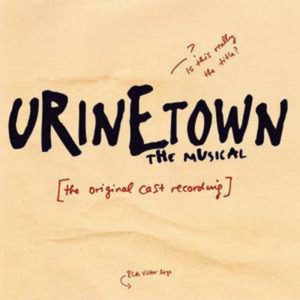
By Alfonso Hernandez

The Fresno Philharmonic directed by Theodore Kuchar and the Tulare County Symphony Orchestra (TCSO) under the direction of Bruce Kiesling each initiated their current season with a concert appealing to the Hispanic population.
In Fresno, the highlight was absolutely the “Neruda Songs” by Peter Lieberson. An extraordinary mezzo-soprano from Clovis, Kelley O’Connor, sang with a voice that reminded me of another great mezzo, Marian Anderson. “The Sombrero de Tres Picos” by Manuel de Falla was cohesive in execution.
In Visalia, the TCSO, with a director who is also somewhat of a standup comedian, and who spoke for more than 15 minutes about trivial information but whom apparently the audience loves, made up with passion what the musicians lacked in cohesiveness, especially in Joaquin Rodrigo’s “Concierto de Aranjuez.”
The Fresno Grand Opera’s fund-raising concert “Vino and Verdi” was a success for several reasons. First, four singers with first-tier quality voices—Lori Phillips, Jeffrey Harman, Stefanos Koroneos and Michelle Rice—were accompanied by super-gifted accompanist Hatem Nadim, and all were absolutely in top form at the Fresno City College remodeled auditorium with the best acoustics I have heard in the Central Valley.
The themes of the concert such as slavery, political oppression, the unjust rights of the aristocrats and the fight for freedom were expressed in “La donna e mobile” and “Quartet” from “Rigoletto”; “Ciel, mio padre” and “Ritorna Vincitor” from “Aida; and especially in the perfect rendition of “Va pensiero” from “Nabucco” by the Fresno Grand Opera Chorus, which was directed by Lukas Cerny.
The reception afterward at the courtyard reminded me of a European setting somewhere in Italy with the best hors d’oeuvres ever and the best wine California offers. Opera lovers who missed this fund-raiser should regret not having been there. I don’t see how one can top this “Vino and Verdi” opera afternoon.
The Ice House Theater of Visalia presented a reading of “8” written by Dustin Lance Black using court transcripts and firsthand interviews showing both sides of the debate in the federal trial of California’s Prop 8. In “8,” the only dramatized scenes are the ones in which two mothers and two sons discuss their situation. Mostly, we hear mini-monologues about how individuals feel about homosexuality and the topic of our time—gay marriage—as well as attorneys’ testimonials and presentations. As a character says in the next play reviewed: “too much exposition.”
On the night we saw the production, we could say that the actors were preaching to the choir. The audience was most appreciative and reacted with applause and laughter at the statements of the characters who were for Prop 8. In what way does gay marriage affect heterosexual marriage? Most of us who opposed Prop 8 are just waiting for a definitive defeat of the Defense of Marriage Act (DOMA).
“Urinetown: The Musical,” by Mark Hollman and Greg Kotis directed by Chris Mangels at the College of the Sequoias theater in Visalia, was the right musical to see on Nov. 10. To express the quality of the production, all I can say is that we need not go to Los Angeles, San Francisco or even New York to see theater. Just go to see “Urinetown” or as one might say “In Your Town” at College of the Sequoias. The voices, the choreography, the high energy acting, the costumes, with few exceptions, were absolutely outstanding.
I thought I was seeing the Berliner Ensemble at the time when Bertholt Brecht was working with Kurt Weil in the “Three Penny Opera.” Epic theater in Visalia? I thought. I don’t remember laughing so hard at any of Brecht’s plays I have seen. In “Urinetown,” the satire, the irony, the countless double entendres, the gags, the allusions to iconic scenes in plays such as “Hamlet” and other musicals such as “Fiddler on the Roof” and “West Side Story” and films such as Titanic just made the audience explode in recognition.
The story is simple: There has not been rain for 20 years in Urinetown, therefore there is no water to flush the toilets and urinating or defecating in public areas is a crime punishable by death. The people in power, especially Caldwell, a Stalin-like dictator, hoards the water underground until his daughter, Hope, joins the rebellion for freedom. Hope sends her own father to the same type of death he had sent Bobby, the love of her life. Is the message then that women should take over in order to end the patriarchal system under which we live?
“Urinetown,” a “metaphysical” town, is a play full of metaphorical, analogical meaning and just the play I needed to see to breathe without worry now that I don’t have to think about “self-deporting” myself, at least for the next four years.
*****
Alfonso C. Hernandez is a writer and poet from Three Rivers, Calif.
